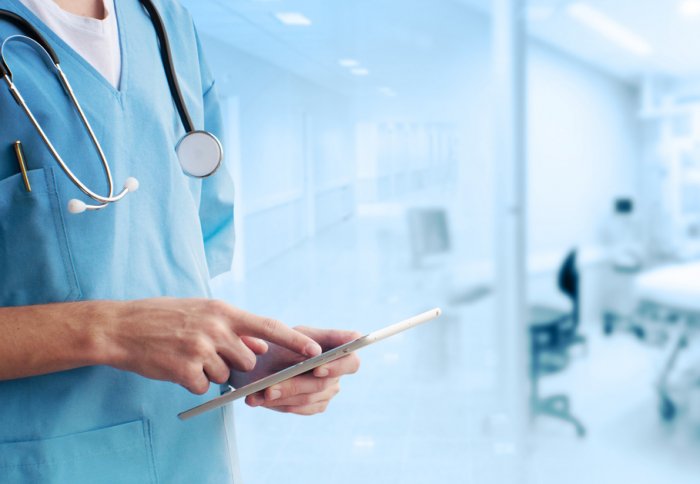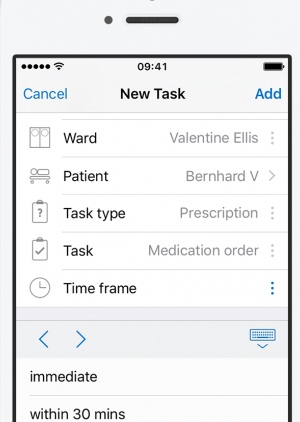Researchers and Google DeepMind collaborate on app to support busy medics
by Kate Wighton

Researchers have developed an app to help medics manage the thousands of individual clinical tasks that need to be organised daily across a hospital.
To keep patients well, nurses and doctors need to carry out tasks ranging from blood tests, to administering intravenous antibiotics and reviewing acutely unwell patients. These tasks continue to be allocated to staff by pager, a technology over 60 years old. The smartphone app designed by Imperial College London researchers, called Hark, is designed to improve the process by helping to prioritise the different clinical tasks that medical staff must perform.
Going forward, the Hark team will join forces with Google DeepMind to develop the technology further and allow it to scale up across the NHS.
Hark should enable all the members of the medical team to share vital information about patients whilst they are on the go, to give patients the best possible care
– Professor Ara Darzi
Director, Institute of Global Health Innovation
The app is the brainchild of Professor Ara Darzi and Dr Dominic King, from the Department of Surgery and Cancer at Imperial. It was developed over the course of five years in a collaboration with medical staff at St Mary’s Hospital, part of Imperial College Healthcare NHS Trust.
Professor Darzi and Dr King identified an urgent need to improve the way busy medical staff manage their extensive lists of tasks throughout the day. Delays in care and poor communication can have potentially serious consequences.
They found that the ways medics handle and prioritise their tasks is outdated.
“At the moment, doctors in hospitals walk around with a paper list of tasks, and staff contact them by pager,” said Dr King.
“But doctors can easily receive a message on their pager every few minutes with requests to see patients on multiple wards. So they very quickly have a list of dozens of tasks, with no clear or robust way of prioritising them.
“We looked at this, and thought surely in 2016 there must be a better way of managing this activity, which would have clear benefits for patients.”
Research recent published by the team in the journal Surgery revealed that effective care is delayed in up to 50 per cent of patients at risk of significant deterioration, primarily because of poor communication.

“After investigating key issues in patient safety, we found instances where patients were showing obvious signs of physical deterioration but that information wasn’t being relayed quickly enough to members of the medical team. There were also problems in handing over responsibility of tasks at the end of a shift, from one team to another,” explained Dr King.
The app’s development was funded by the National Institute for Health Research (NIHR). Early data from a pilot at Imperial College Healthcare NHS Trust suggests staff responded 37 per cent faster with Hark compared to pagers.
Google DeepMind will now combine the app with a second app, developed in conjunction with clinicians at the Royal Free Hospital in London, called Streams. By bringing both together the hope is that nurses and doctor will be able to identify deteriorating patients earlier and respond in a more organised way.
Professor Ara Darzi, Director of the Institute of Global Health Innovation at Imperial College London, said: “Hark should enable all the members of the medical team to share vital information about patients whilst they are on the go, to give patients the best possible care and to ensure that staff will spot it quickly when a particular patient needs urgent attention.
“Hark has the potential to transform healthcare delivery, but as clinicians and researchers we can only take digital solutions like this so far. To build and scale these tools across the NHS we need to work with the world’s leading technologists who share our commitment to safe and high quality care for all,” he added.

Professor Gavin Screaton, Dean of the Faculty of Medicine at Imperial, said: “Hark is an exciting development in the field of patient safety, and we are pleased that its huge potential has been recognised by Google DeepMind. This is a great example of researchers at Imperial working with clinicians and other partners to create innovative ways to improve patient care.”
Article supporters
Article text (excluding photos or graphics) © Imperial College London.
Photos and graphics subject to third party copyright used with permission or © Imperial College London.
Reporter
Kate Wighton
Communications Division